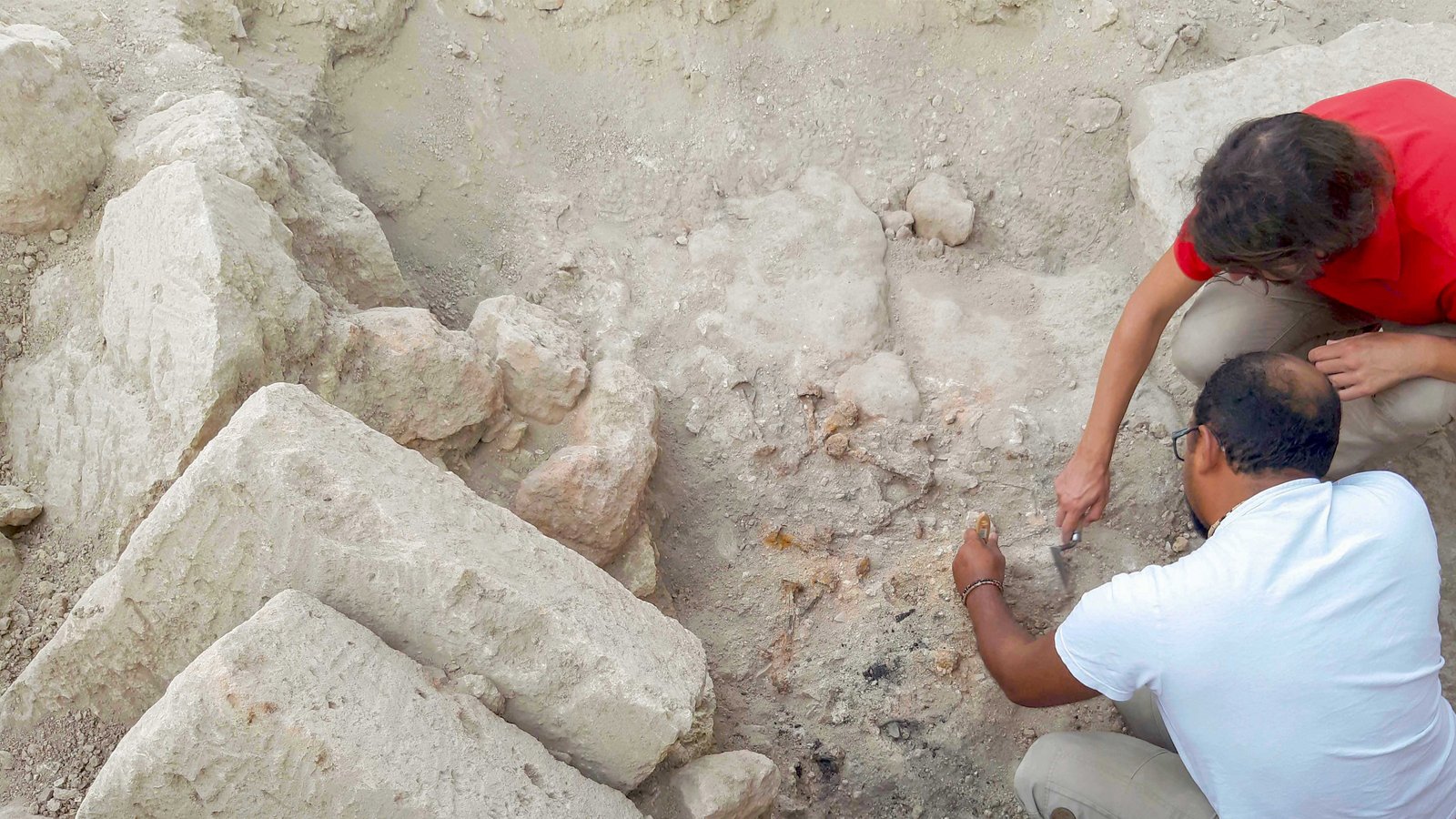What we do
Our mission is to conduct, promote and publish research in the various archaeological disciplines and related sciences worldwide. Our sites, projects and stable networks of people are catalysts and hubs for interdisciplinary and international research and transfer worldwide. By working in partnership and developing joint research approaches with host and partner countries, the DAI creates open spaces for scholarship and counters the (mis)appropriation of the past and threats to cultural heritage.
We support scholars in the early stages of their careers. We are committed to capacity building, exchange with civil society, the consistent development of digital structures and thus to cross-border access to knowledge. Our research lays the foundations for the protection, preservation and communication of the material culture of early societies. We question existing concepts of cultural heritage and historical narratives in the context of current discourses and develop new formats of exchange. We analyse early societies and environments in contemporary contexts, from the cultural to the political. In doing so, we make visible the impact of past social and cultural dynamics as factors in today's global challenges.
Statutory Mandate
The German Archaeological Institute is a research institute. Its mission is to conduct, promote and publish research in the various archaeological disciplines and related sciences worldwide. It promotes scientific and disciplinary diversity as well as international cooperation and the development of integrative research approaches. On the basis of its research, it contributes to the protection, conservation and communication of cultural heritage throughout Europe and the world. It maintains research infrastructures open to scholars of all nations. It strives for the unity of the German archaeological sciences in connection with all the sciences of antiquity, and for the promotion of young scholars and scientific exchange throughout Europe and the world. In doing so, it also serves foreign cultural, educational and scientific policy. (§1 of the Statutes of the German Archaeological Institute)
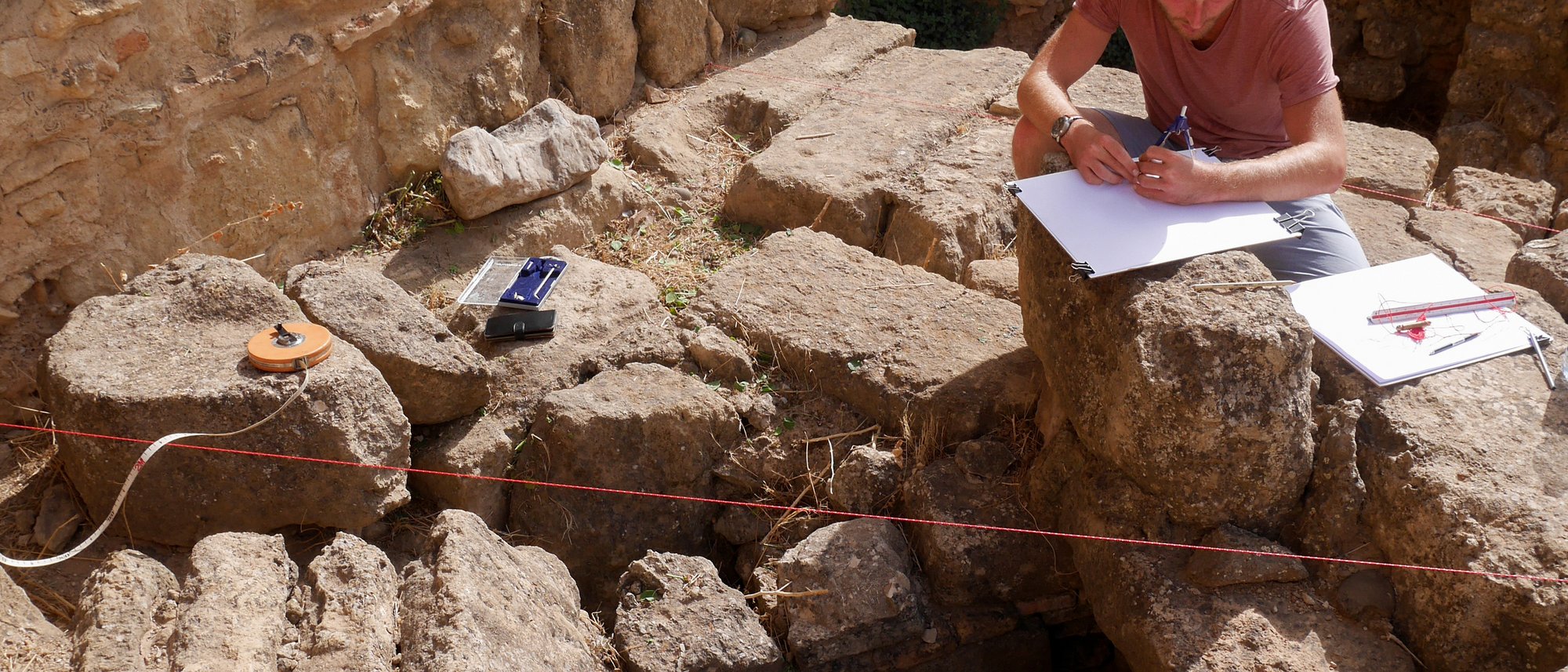
© DAI
Modern Research Methods
There is more to archaeology than just excavation. Modern archaeological research brings together scientists from different disciplines in international collaborative projects. Using innovative technologies and analytical methods, they work together in the field and in the laboratory to increase our knowledge of the past.
© DAI // T. Lemke-Mahdavi
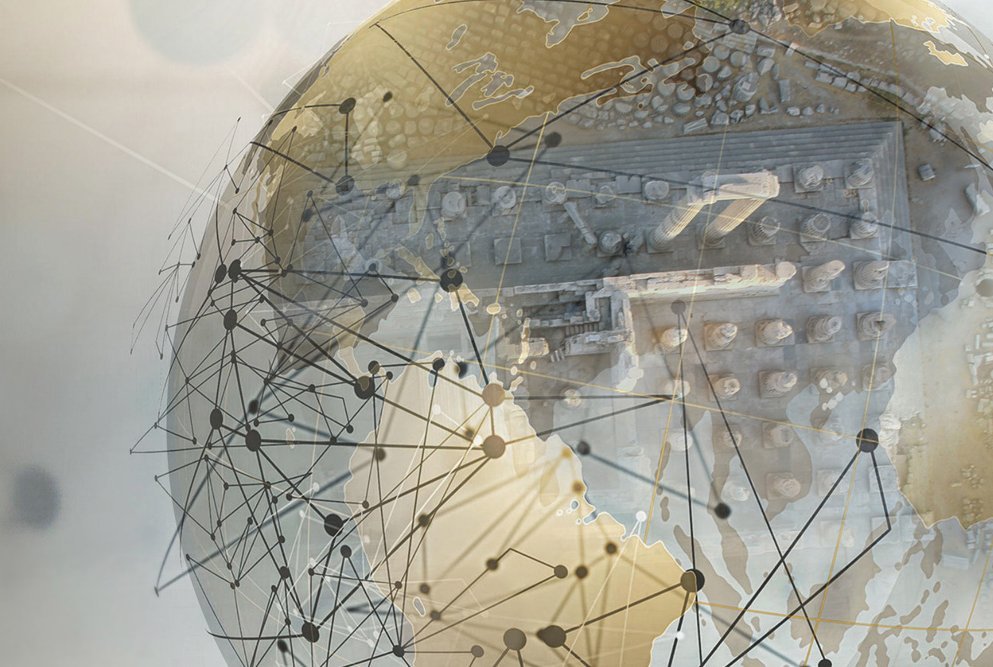
Basic research - worldwide and interconnected!
When the foundation stone of today's German Archaeological Institute was laid in 1829, a group of scientists, artists, diplomats and people interested in antiquity pursued a European and international idea. In the course of its almost 200-year history, the DAI has developed a structure that allows for flexible, joint, worldwide and networked research.
Kar-Tukulti-Ninurta/Tulul al-ʿAqr (Irak). 3D-Modellierung der Grabungsaufnahme des Assur-Tempels auf einem fotogrammetrischen Geländemodell in Kar-Tukulti-Ninurta. © DAI, Orient-Abteilung // Felix Wolter
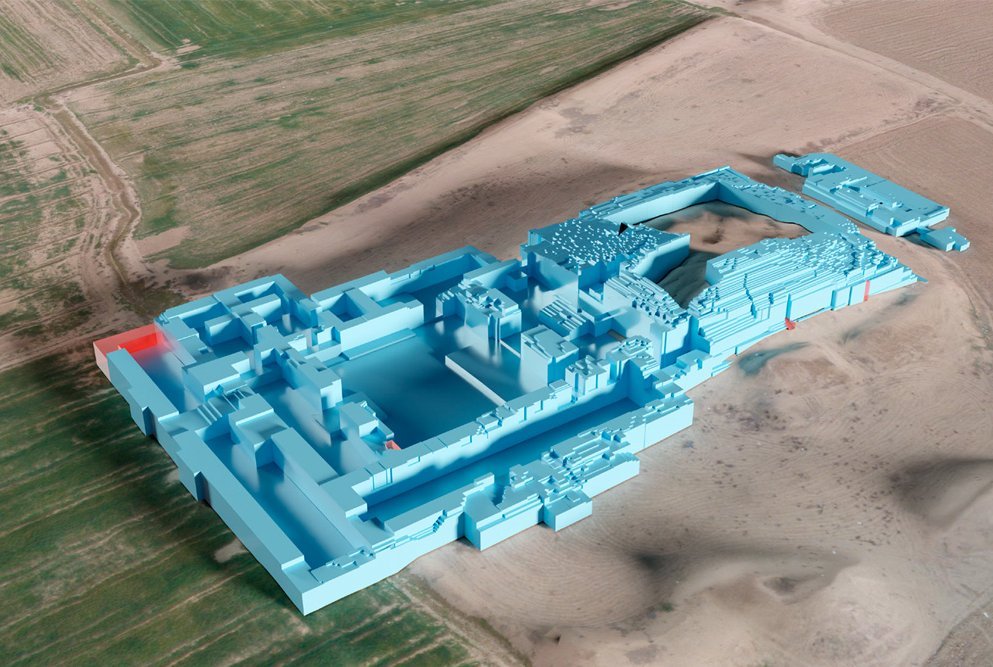
Digital Research / Cross-sectional Task of Digitization
One of the central tasks of the DAI is to provide sustainable, international and open access to knowledge. Since the beginning of the 19th century, important specialist libraries, photographic collections, archives and collections have been built up. In order to make these openly accessible and to secure them through digitisation, an important digital knowledge management infrastructure has been developed in collaboration with iDAI.world.
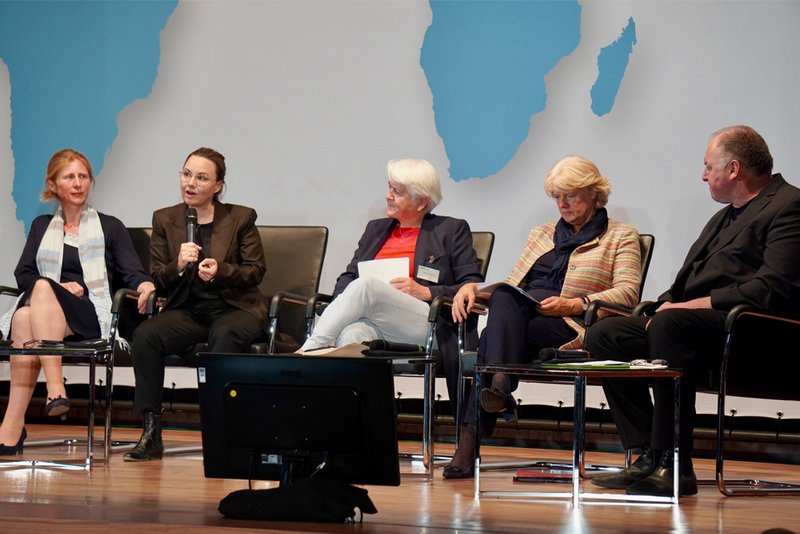
Podiumsdiskussion mit Bundestagsabgeordneten auf der Groundcheck Konferenz im Auswärtigem Amt am 2.6.2022 © DAI // J. Notroff
Science Diplomacy
The DAI has a long tradition of research activities at many research locations. Over the years of cooperation with the relevant research institutions, authorities and ministries, trust has been built up that has survived even difficult periods in the relations between the Federal Republic of Germany and the partner countries. In times of stability, both sides benefit from an actively cultivated and lived foreign science policy through the co-production of knowledge, mutual knowledge transfer, international exchange and much more.
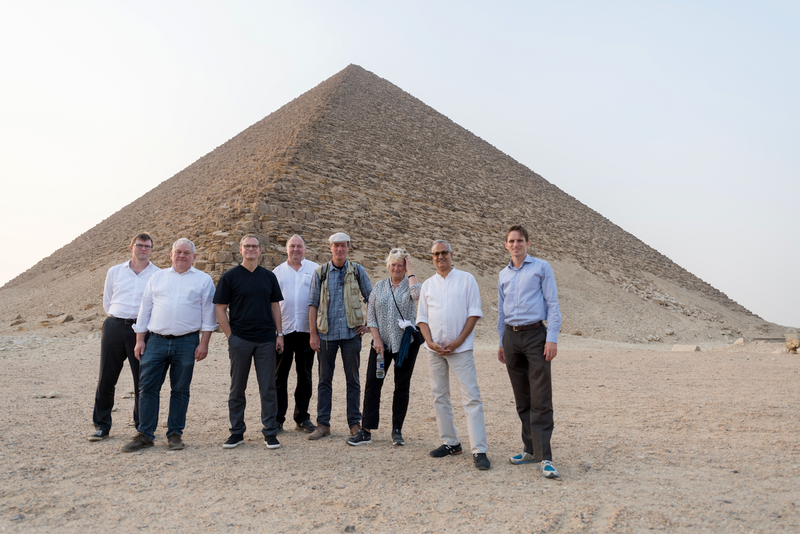
Mitglieder des Unterausschusses Auswärtige Kultur- und Bildungspolitik in Dahschur während einer Delegationsreise nach Ägypten, 2022 © DAI, Kairo // B. Ezzat
Foreign Cultural and Educational Policy
By researching ancient cultures as the basis of our contemporary civilisations, the DAI creates a link to the present that extends from the scientific to the cultural to the political. Only knowledge of the past leads to a deeper understanding of today's realities and thus to mutual understanding and dialogue between cultures.
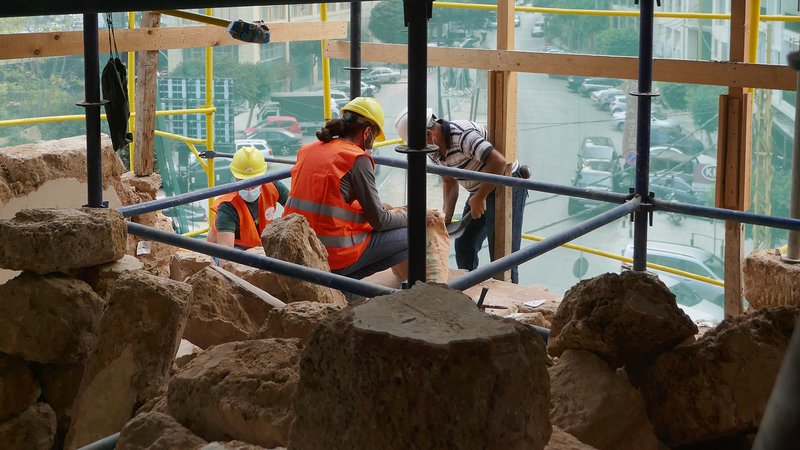
Rettungsmaßnahmen einem der ältesten Häusern Beiruts, das bei einer Gasexplosion 2020 stark beschädigt wurde © DAI // Margarete van Ess
Cultural Preservation in Focus - KulturGutRetter
Through our research, we contribute to the protection, conservation and communication of cultural heritage in Europe and around the world. In addition to conservation and restoration work, this includes assistance with emergency excavations and the documentation and rescue of cultural assets. Architectural research plays a special role at the DAI. The design of space through buildings is characteristic of almost all early cultures. It is the object of architectural research to study them. Building on this research to contribute to the preservation of the built, immobile cultural heritage is therefore a central concern of these disciplines. The Architecture Department at the Head Office not only supports the DAI's Monuments Commission, but also coordinates the Archaeological Heritage Network and the KulturGutRetter programme.
Quality Assurance
We see quality assurance as an ongoing process that is systematically embedded in our organisational structures. Various formats of internal and external quality assurance are provided for this purpose. We target the research processes, their methods and theoretical underpinnings, as well as the quality of the research questions and results.
Our commitment - Good Scientific Practice
The DFG Code of Conduct "Guidelines for Safeguarding Good Research Practice" is binding for the German Archaeological Institute. It is implemented at the DAI in the form of a guideline and anchored in the working and research practices of the DAI through organisational structures, information services and a DAI-specific code.
INFRASTRUCTURES FOR SCIENCE
A long-term presence in host and partner countries is the basis for trustful cooperation. For this reason, the DAI maintains research infrastructures in many countries, such as specialist libraries, which are geared to the work areas and disciplinary focuses of the individual departments and commissions.They are used by German and foreign scholars and are lively places of communication and scholarly exchange. Some of these infrastructures have a long history and, like some of the libraries and archives, date back to the founding days of the DAI. Our digital research infrastructures in the iDAI.world are at the cutting edge of technology and are constantly being developed and expanded.
PROMOTE CAREERS & BUILD CAPACITY
The DAI supports students and scholars in the early stages of their careers through participation in projects and excavation campaigns, through the supervision of dissertations, and through educational and training opportunities (courses, summer schools, etc.). We support early career researchers through fellowships such as the Travel Fellowship, Research and Study Abroad Fellowships, DAI-AIA Fellowships. We also offer opportunities for internships or academic dissertations. Volunteer positions through the German UNESCO Commission's Kulturweit programme (https://www.kulturweit.de/programm) and the involvement of interns in excavation projects complete the offer.
PROMOTING DIVERSITY OF ( DISCIPLINARY ) CULTURES
Through the design of our projects, the promotion of young researchers, and national and international collaborations, we are committed to preserving the diversity of disciplinary cultures. In order to study past societies, their cultural dynamics and their interconnections, and thus to answer complex questions of the Anthropocene and geoanthropology, the cooperation of many disciplines is fundamental. Our projects are therefore multidisciplinary and interdisciplinary. Many of these disciplines belong to the small disciplines and are represented at only a few universities in Germany. Some expertise on the diversity of the world's early cultures is even only represented in Germany by the DAI.
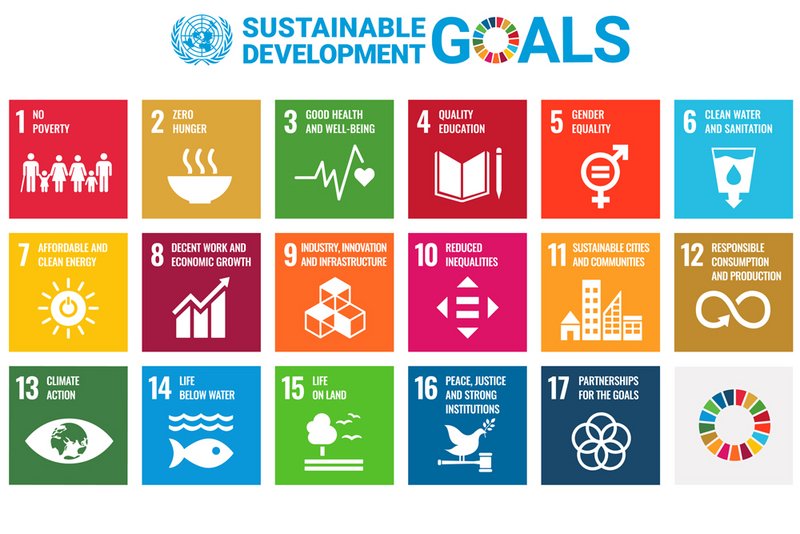
© // public domain
Promoting Sustainability, Equality and Diversity
Sustainability and diversity are essential benchmarks for us. Sustainability or sustainable development means meeting the needs of the present without compromising the ability of future generations to meet their own needs. Our actions are guided by the UN's 17 Sustainable Development Goals (SDGs).
